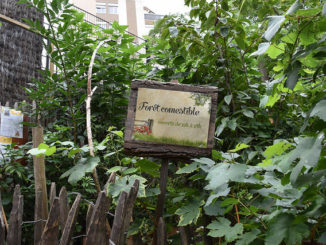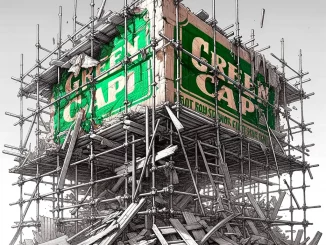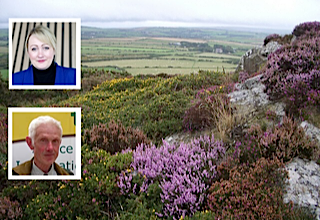Following Jean Claude Junker’s announcement of a CAP Communication by the end of 2017 Copa & Cogeca Secretary-General Pekka Pesonen outlines his vision on where next for CAP. Part of our #AfterCAP debate series.
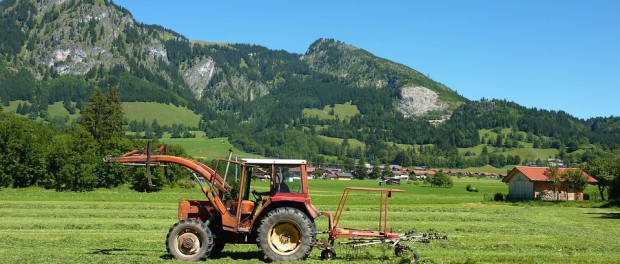
EU Agriculture Outlook Conference details
European farmers and agri-cooperatives have suffered a serious crisis in the past years, hit by low prices, high input costs, extreme market volatility and weather events as well as barriers to trade.
They lost their main export market – Russia – overnight as a result of international politics.
They have also been stifled by red tape and excess bureaucracy under the Common Agricultural Policy (CAP).
Prices are starting to recover in some of the worst hit sectors – dairy and pork – partly as a result of increased demand from China as well as the release of emergency EU aid packages. But markets remain fragile.
Neither farmers nor consumers can suffer another crisis like that if we are to feed a growing world population, solve hunger and malnutrition and ensure that we have vibrant rural areas in the future.
At Copa & Cogeca, which represents the voice of nearly 23 million farmers and 22, 000 cooperatives, we are already starting to work on the CAP of tomorrow.
What we need in the future is a stable, simple EU agricultural policy that works for farmers, for consumers, for the environment so that the economies of rural areas across Europe can prosper.
Like everyone, farmers need the possibility to have a good life in rural areas, with access to good education, health facilities and jobs for their family members. They also need to be in a position to use the latest technology like precision agriculture, drones, robots which can help them to produce more using less resources. Inputs like fertilizers can be applied in a more accurate manner with precision farming, enabling them to save on input costs. They can produce more and better using less resources so that they can contribute to one of the biggest challenges over the next decade: the need for increased food production for a growing world population and also the fight against climate change which threatens food production. Uptake of these new technologies need to be increased. EU support and training is essential here and an adequate broadband infrastructure so that they can profit from digital farming.
Rural development policies – as recognised by the Cork Declaration – are also crucial to support investments, innovation, enhance biodiversity. In addition, red tape that is stifling innovation in the EU agriculture sector must be cut. It is also important to develop innovative products which are based on latest consumer trends as consumers are willing to pay more for new, innovative products.
To ensure a strong CAP post-2020, it is crucial to ensure that:
- investment in the sector is stepped up and research and innovation boosted;
- good infrastructures in rural areas and broadband access is ensured so that we can develop our businesses and benefit from smart farming and digital technology;
- conditions are established to help producer organisations like agri-cooperatives set up so that farmers can join forces to market their produce, add value to produce to get a higher return and better manage the extreme market volatility;
- farmers are given proper training and education;
- young farmers are given support as they face difficulties particularly when getting started;
- unfair and abusive practices in the food chain (UTPs) are addressed so that farmers have a better chance to get an income from the market. It is important that a regulatory framework exists in the EU that protects suppliers and we call for movement from the EU Commission here;
- an ambitious export strategy and balanced trade agreements are ensured. The free trade talks between the EU and Japan must be concluded in 6 months. Trade deals with Mexico and Indonesia will also benefit us;
- Promotion measures are stepped up to develop markets further and in other parts of Asia and Africa for our quality products;
- non-tariff barriers to trade are tackled and quality products covered by Geographical Indications (GIs) are recognised and protected around the world;
- the common nature of the new Common Agricultural Policy (CAP) is ensured and red tape reduced, especially the burdensome greening measures;
- a stable, sustainable CAP, which maintains both the first and second pillars and direct payments to farmers, is ensured post-2020;
- the CAP post-2020 better responds to consumer demands and to crises and must be based on economics so that farmers and agri-cooperatives can plan ahead and remain viable;
- Tools at farm level are developed in the CAP post-2020 to help farmers remain viable and better manage the risks of increasingly volatile markets. For example, risk management measures, insurance, futures markets, stronger measures to manage the market.
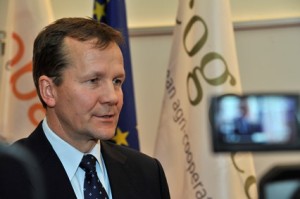
We will continue to work on this to ensure that we have a modern, sustainable and competitive CAP in the future capable of meeting the challenges of tomorrow.
Pekka PESONEN is Secretary General of COPA-COGECA, an agricultural lobby representing 77 national farm organizations in Europe. He has previously been working for the Finnish Ministry of Agriculture and Forestry as state secretary.
More on the Oulook Conference
Jean Claude Juncker speech at the Outlook Conference
Audio-Visual Recording (Europe by Satellite)
The European Commission will adopt before the end of 2017 a Communication on the future of the Common Agricultural Policy (CAP) post-2020, Commission President Jean-Claude Juncker announced yesterday. See here for more.



